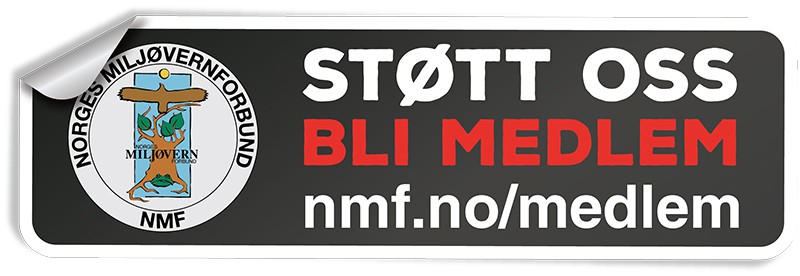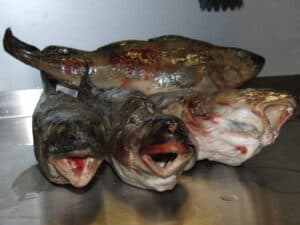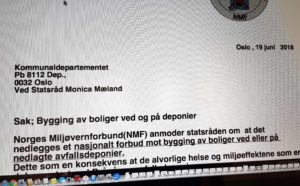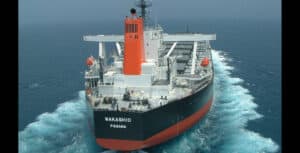The Environmental Protection Association has cleaned the length of Norway every year since 2017, where we have sailed with the Environment Queen as an operational platform and cleaned from Oslo to Kirkenes several times. We had big ambitions for 2020. We are very satisfied with this year's result from the beach clean-up, despite the fact that the financial situation is strained. We have cleaned 67,000 kilos of marine litter from the beaches in Western Norway, without a penny in public assistance.
None of the major contributors within beach clean-up supported us financially for 2020, not even those who in full public gave celebratory speeches where they promised to secure us funds for our activities. The problem is that when we realized that the grants and the promised contributions failed, we had already committed ourselves to accepting volunteers, employed personnel and incurred a number of obligations, says Ruben Oddekalv, project manager for the beach clean-up.
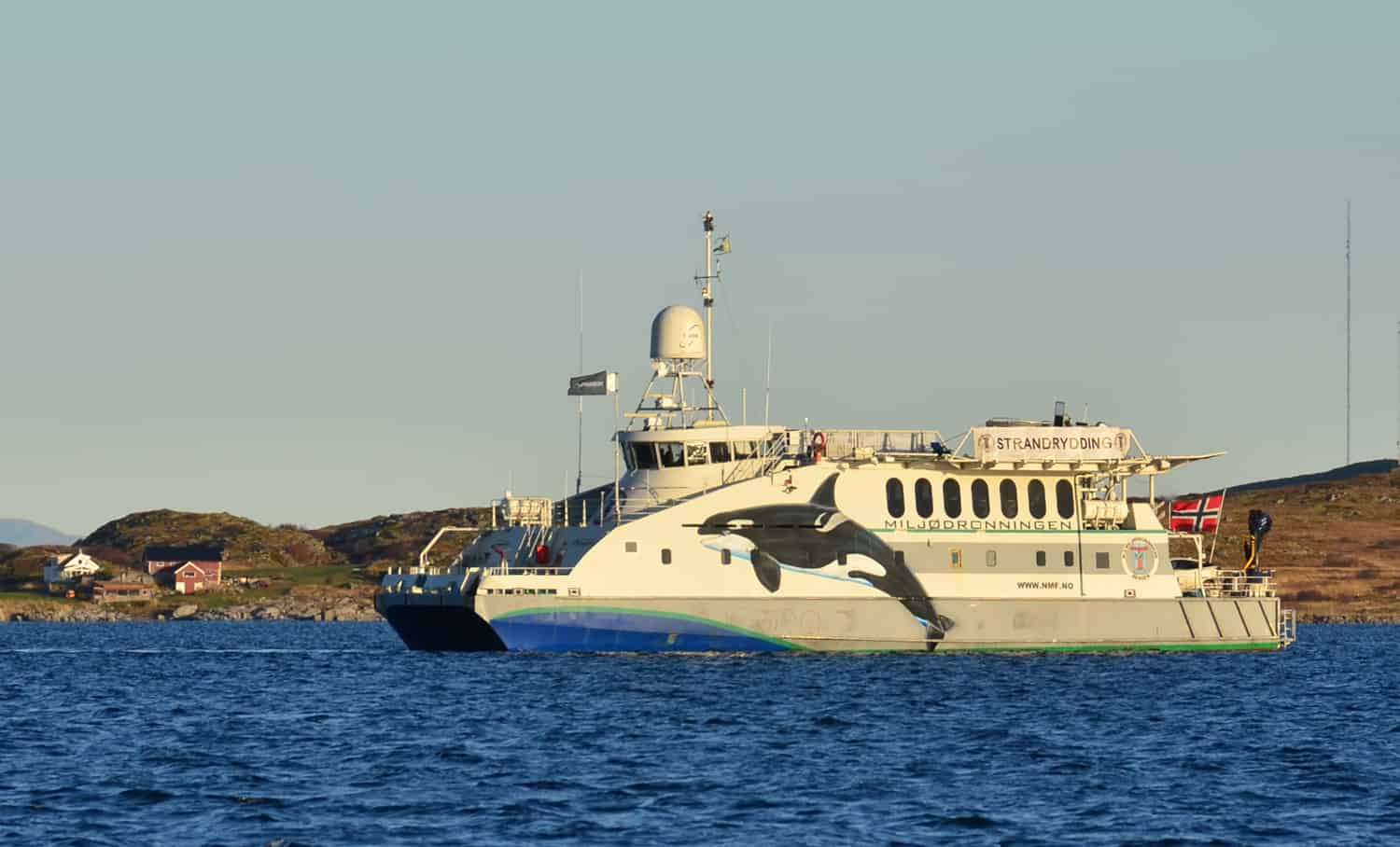
Our work with marine litter in 2020 is part of the "Living Sea" project https://www.levendehav.no/om/ which is a collaboration between a number of players initiated by us at the Swedish Environmental Protection Agency and the association In The Same Boat.
Norrøna gave us a much-needed contribution in the form of last year's Christmas calendar, otherwise we have paid for this year's activities from our own funds. This has burdened an already struggling economy far too much.
Started with own funds
We started beach cleaning in Western Norway with our own funds, without public support. At the end of August, we could not incur any more debt, and we had to end this year's beach clean-up campaign, send the volunteers home and dismiss the employees after more than five months of continuous beach clean-up work starting in Bergen, which resulted in over 67,000kg collected marine waste from Hellesøy in the north to Bømlo in the south.
We consider this year's beach cleaning season a huge success, apart from the fact that now that the season is well over, we are left with several hundred thousand kroner in debt as a result of our activities.
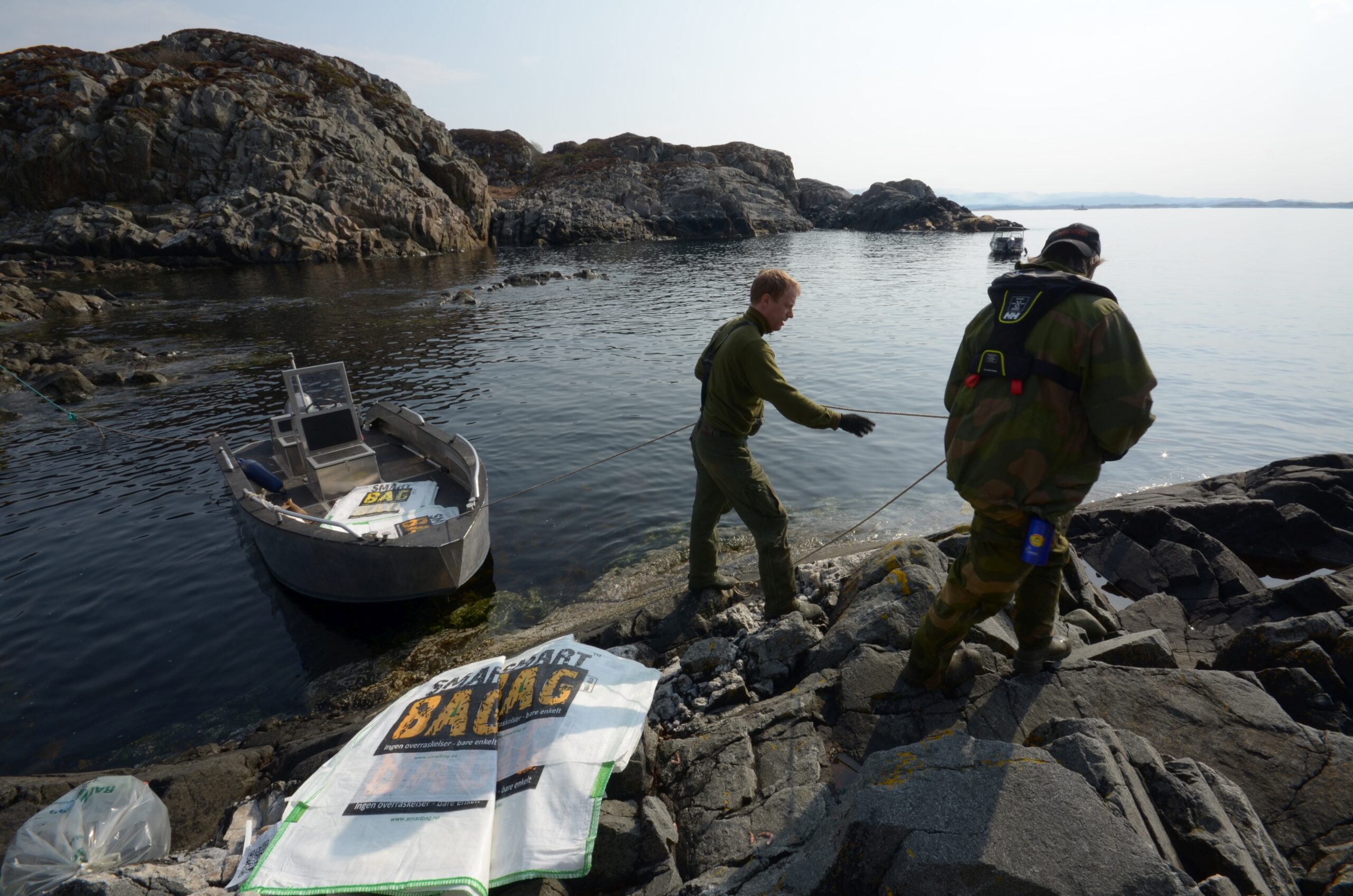
Corona stopped the beach cleaning tour
The plan was a school trip from Haugesund and north, where we were to fill the ship with long-term volunteers, clean over 50 birds and nature reserves along the sailing route. At the same time, we were to have school classes from the schools along the sailing route on board giving lectures and teaching about marine litter and the impact on nature. We had also agreed to take samples of both bottom sediments and fish along the entire route, which were to be analyzed for microplastics when the tour was over.
Over 1,200 students and long-term volunteers from different parts of Europe were registered. Then there was a lockdown.
Cleaning in isolation
The members of our beach cleaning family of 5-13 people were practically isolated and stayed on islands out in the sea without contact with other people for a long time. Long-term beach cleaning with a closed group proved to be the perfect lock-down activity. We sometimes lived at Miljødronningen, which was in storage in Bergen, and sometimes in cabins, cabins and, for the longest time, in a nursery that was empty during the summer.
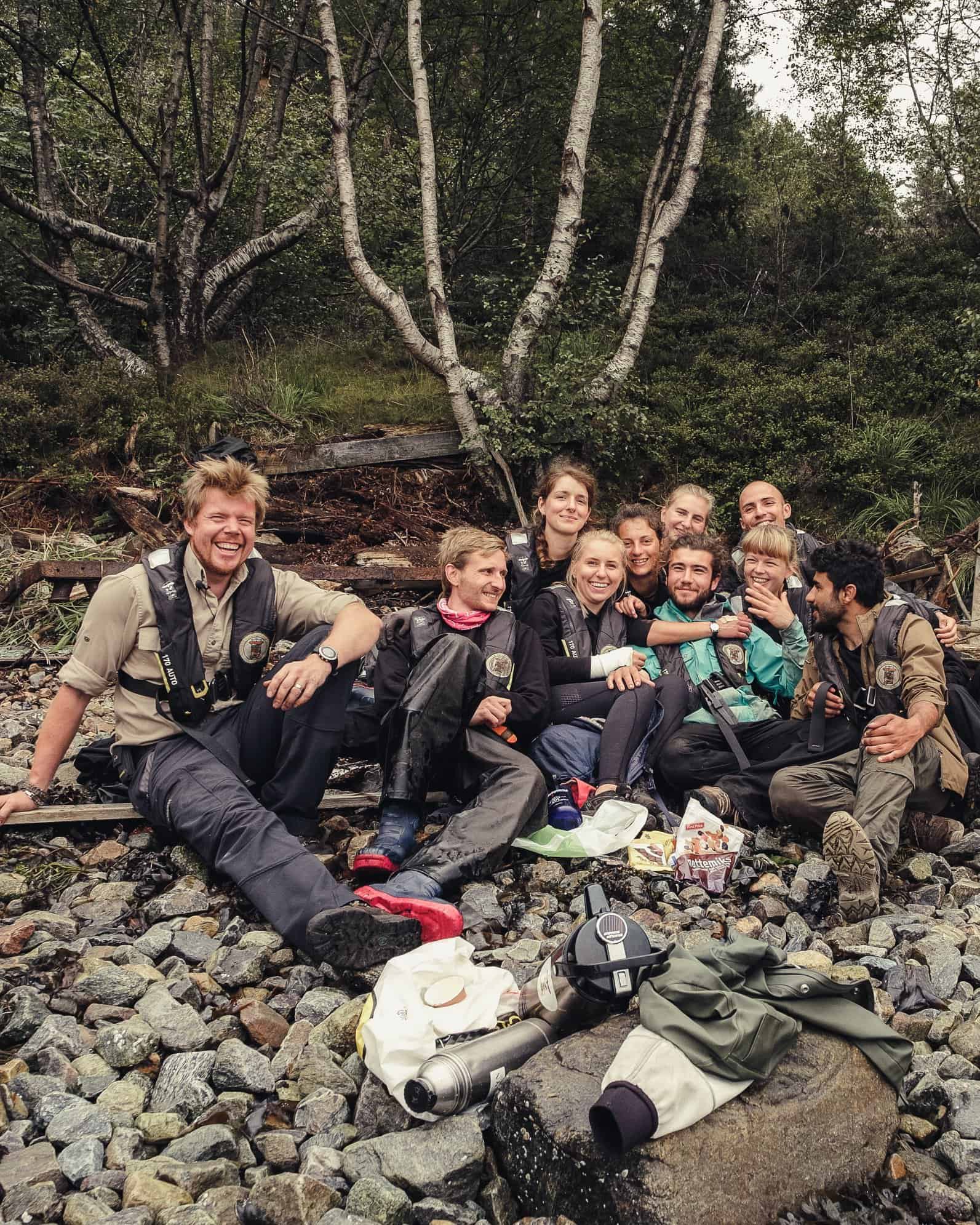
Participation changes attitudes
Only when people get to participate in beach clean-ups, get to see with their own eyes how bad it is in many places and physically get to grips with the problem, do people start to feel ownership of the problem. This is when attitudes change, both among children and young people. It is only when attitudes change and people are prepared for change that room for action is opened up for politicians and authorities, and that action is taken to stop the supply of new plastic to the sea.
We are very proud to have completed a good season of active beach cleaning through the worst of the corona epidemic. 67,000 kilograms have been removed from nature and taken out of the food chain.
Today, we have accumulated financial "beach cleaning debt" to several of our suppliers. We are now working diligently to pay off what we owe, so that in the coming year and in the years to come we can also be present where it matters most, says Ruben Oddekalv, project manager for the beach clean-up.

